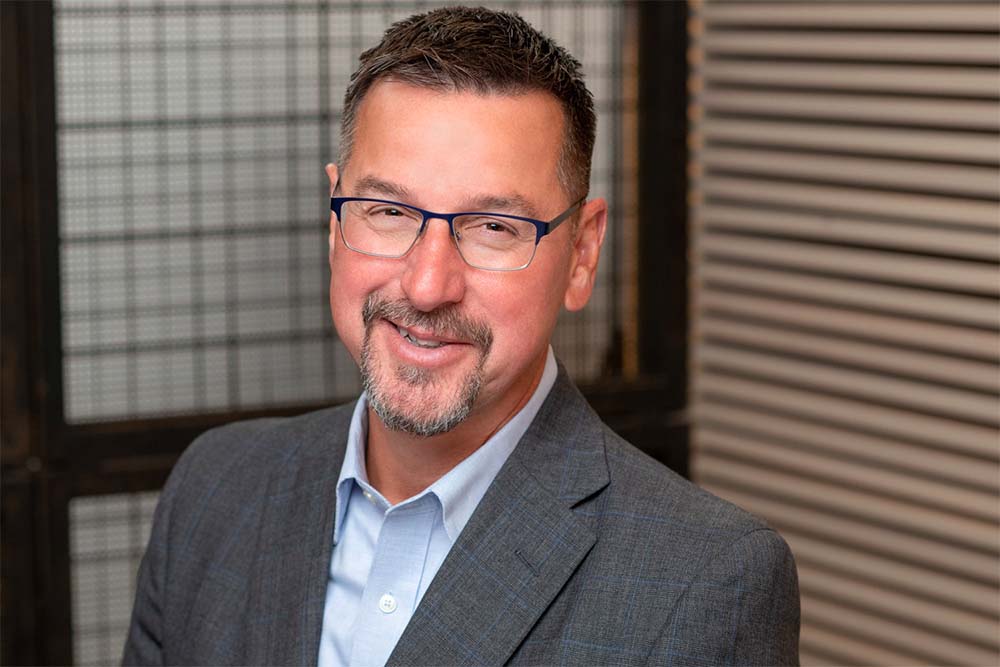
- Details
- By Chez Oxendine
- Economic Development
Newly minted Potawatomi Business Development Corporation CEO Kip Ritchie has become the first Forest County Band of Potawatomi tribal member to take on the lead executive role in the tribe’s non-gaming enterprise arm.
No pressure, he tells Tribal Business News.
“It's exciting, it's exhilarating, it's very challenging,” Ritchie said of taking the helm of the tribal economic development firm. “This is the first time a tribal member has served in this role, and so it's a really honored privilege.”
That means building generational resilience through new investments in federal contracting, real estate, and PBDC’s other commercial enterprises, as well as its portfolio of passive investments. It also means building PBDC as an economic development corporation (EDC).
“We’ve really tried through the years to follow the Harvard model on American Indian economic development, and really following that success model for a tribally chartered corporation,” Ritchie said. “Even though we've been in a strong position through gaming, we're still in our infancy when it comes to building out a really strong EDC.”
Ritchie, who has worked for PBDC in different leadership roles in the past, spoke with Tribal Business News recently about what’s next for the tribal economic development corporation under his leadership. This interview had been edited for clarity and length.
Where do you see PBDC’s strengths, currently?
I think of it as a three-legged stool, right? One leg is our federal government contracting practice. Another leg is our passive investments where we’ve invested dollars through the years in real estate, energy, (and) hospitality. We’re looking at building our investment strategy in some places around not having ownership, but dividends.
The other leg would be a commercial division where we're taking our advantages as a minority-owned business and leveraging them competitively. We’re expanding and adding additional professional services and managed services, and then in the last couple of years, the tribe has done a lot of real estate investing and acquisitions.
Talk to me about the real estate leg. What has it looked like for PBDC over the past few years?
We've relied heavily on outside expertise to help navigate that space, we've never had an internal capacity for that, so we've decided to launch an internal firm called Sagewind. That will allow us to take some of the tribe's existing assets and fully leverage those into real estate operations. That really sets the tribe up for generations to come and make a difference in that real estate space.
What about other moves in the commercial or retail space?
We’ve got our convenience stores. The tribe has been involved in the convenience store business for a couple of decades. The tribe asked us to help run those stores, and a part of that strategy was to build out a new travel center concept called Fireside Market.
We've prototyped development, we've done some focus groups and surveys, and we've looked at what a new launch of new stores could look at, we've looked at differentiators and what we could do to make an impact in a fairly busy space. That's an area we are expanding on, and we will have more news to share in the coming months as we prepare for our first groundbreaking sometime mid-next year.
What kind of research has gone into the Fireside Market concept?
We've paid close attention to other travel center firms in other areas of the country that are having some success. We obviously want to be unique in our offering, and bring something to market that people are going to be really excited about.
What are some of the “differentiators” you’ve looked at so far?
We're still working through some of that. We do see some opportunities to order food. Having good quality food available is really important; we've got some competitors with good food offerings that may not be made to order, so that's really important to us.
There's also being considerate with technology, and the electric vehicle space and charging. There's also cleanliness and being efficient in our overall delivery in the convenience aspect. It's probably a little early to talk about. We want to keep some mystery alive, but we feel like we've got a pretty good model.
What about your plans for the federal contracting space? It’s been one of the fastest growing revenue streams for Native Americans in recent years.
The way we've addressed the government contracting space over the last 10-12 years in particular is by creating new 8(a) entities. We want to be able to supply technical support, base operations, maintenance, personnel support, engineering, construction management — professional services based (entities), where we can go out and compete. So we will continue to do that by adding additional 8(a) businesses in.
What’s your opinion on the push towards federal contracting? Is this a good route for Indian Country to take towards diversifying revenues?
It's really a great way to create a win/win, for tribes, for Indian Country, and the federal government. It's not a hand out, it's a hand up. The federal government is getting a good value while tribes are building capacity, building acumen. We're creating jobs, and creating opportunities and strengthening Indian nations as a whole in that contracting space.
